Africa
Zimbabweans stay at home amid fears demonstrations could turn violent
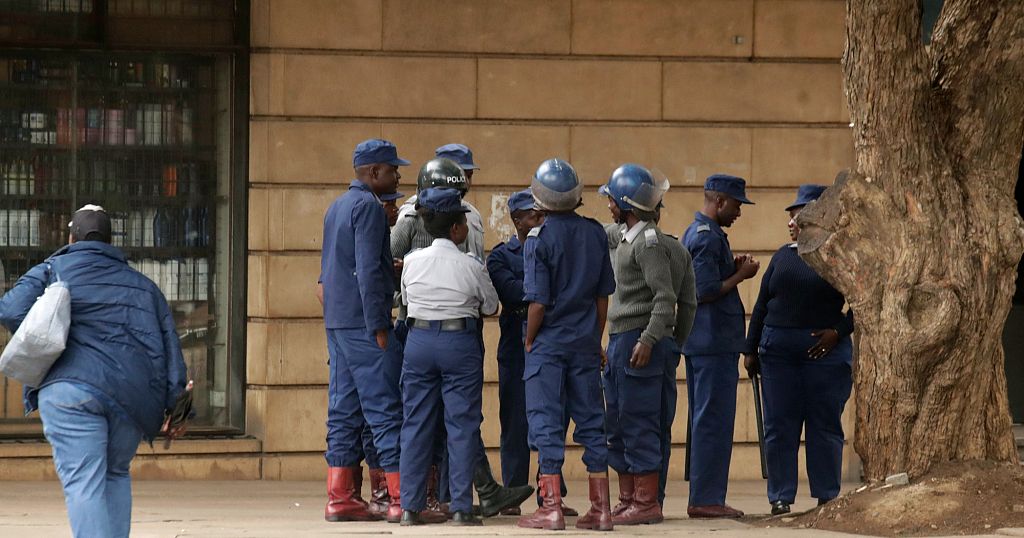
A heavy security presence in several cities across Zimbabwe largely neutralised a national protest on Monday aimed at pressurising President Emmerson Mnangagwa to resign.
Most businesses, offices, and schools in the capital Harare and Bulawayo shutdown, with people choosing to stay home amid fears of unrest.
Independence war veterans had called for the demonstration to protest against plans to extend Mnangagwa’s rule.
In January, his ruling ZANU-PF party said it wanted him to stay in office for another two years until 2030.
Mnangagwa came to power in 2017 after his mentor and long-term president, Robert Mugabe, was ousted in a coup.
He is currently serving his second and final term as president.
Veterans, led by Blessed Geza, previously supported Mnangagwa but have turned against him, accusing him of corruption and wanting to cling to power.
They want retired general and vice-president Constantine Chiwenga, to take over as president.
Chiwenga has not commented publicly about the calls for him to replace Mnangagwa and government officials deny there is a rift between the two men.
Police in Harare described the situation in the country on Monday as “peaceful” and encouraged people to go about their daily business.
In a video shared on social media, security forces were seeing using teargas to disperse a small group of protesters in Harare chanting “We reject 2030”.
Mnangagwa and his administration have faced numerous allegations of corruption and mismanagement as the country faces an economic crisis.
The president has repeatedly denied he intends prolonging his presidency, but many remain unconvinced he will step down.
Zimbabwe’s 2013 constitution limits presidents to two five-year terms.
Africa
Sahel ministers visit Moscow to strengthen ties with Russia
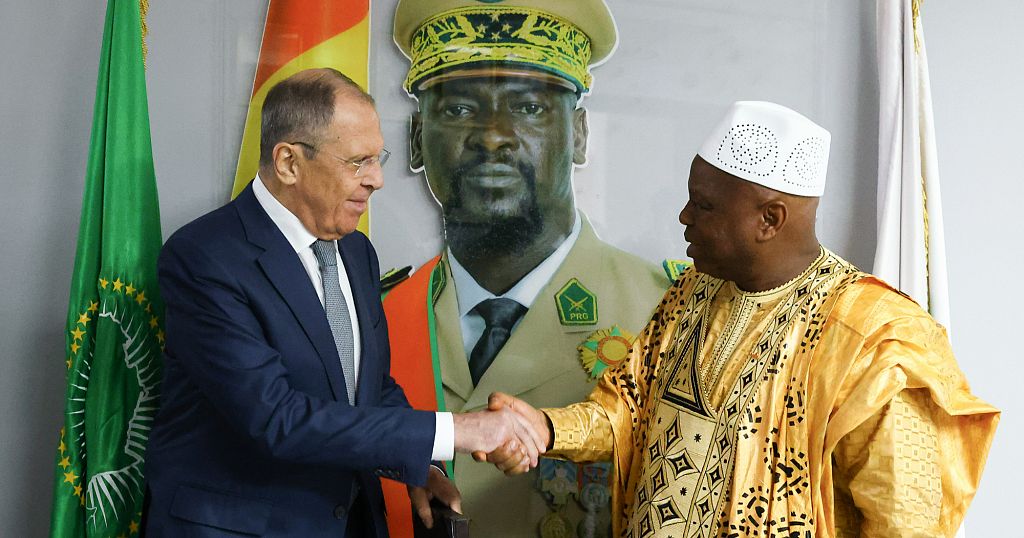
In a significant shift in the region’s diplomatic and security landscape, the foreign ministers of Mali, Burkina Faso, and Niger will visit Moscow this week to deepen their strategic ties with Russia.
Scheduled for April 3-4, this marks the first AES-Russia consultations since the formation of the Confederation of Sahel States (AES) in 2024.
The visit underscores a growing pivot away from former colonial power France and the regional organization ECOWAS, with these West African nations, governed by military juntas following a series of coups between 2020 and 2023, seeking political and military support from Moscow.
This realignment comes as the Sahel region grapples with ongoing jihadist insurgencies that have devastated local populations, claiming thousands of lives.
As part of the AES’s Year 1 Roadmap, chaired by Mali, the ministers will engage with Russian Foreign Minister Sergei Lavrov to discuss enhanced cooperation in defense, security, and economic development.
The AES sees the visit as a “crucial step” toward advancing its shared goals.
Russia has already contributed military support via its Wagner Group, and the three nations have signed defense agreements with Moscow. Collaboration is also underway in the energy and mining sectors.
The visit follows the AES’s decision to withdraw from multiple international organizations and establish a joint 5,000-strong military force aimed at tackling regional terrorism.
By strengthening ties with Russia, the Sahel states aim to bolster their security efforts and assert greater autonomy from Western influence.
Africa
Congo commutes death sentences of 3 Americans convicted in failed coup
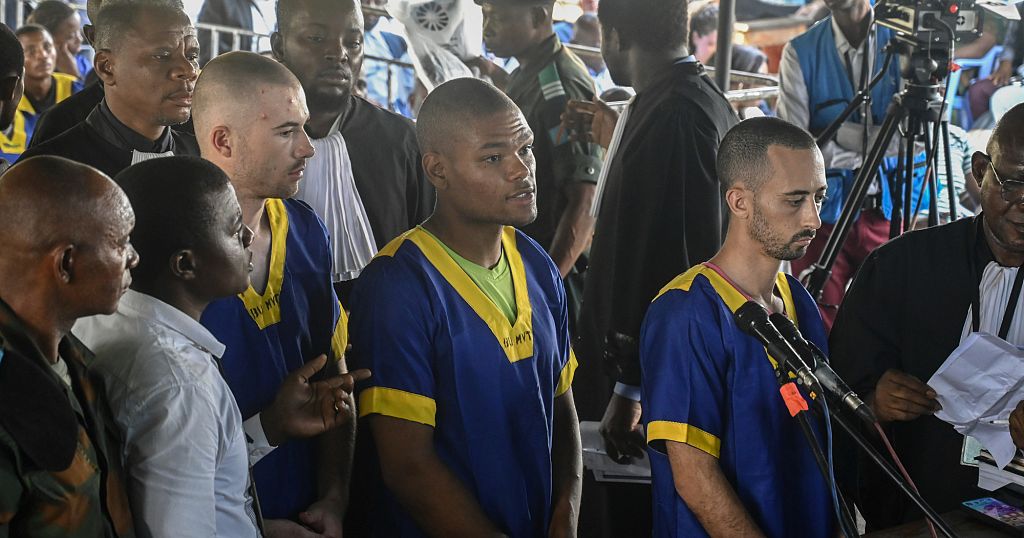
Congo’s President Felix Tshisekedi has commuted the death sentences of three Americans convicted on charges of participating in a botched coup attempt in the country’s capital Kinshasa last year, an official said Wednesday.
A presidential order commuted their death sentences to life imprisonment, Congolese presidential spokesperson Tina Salama said, more than six months after a military court sentenced the three and more than 30 others to death for the failed coup.
The pardon came amid efforts by Congolese authorities to sign a minerals deal with the U.S. in exchange for security support that will help Kinshasa fight rebels in the conflict-hit eastern region.
Six people were killed during last year’s botched coup attempt, led by little-known opposition figure Christian Malanga, that targeted the presidential palace in Kinshasa as well as a close ally of Tshisekedi. Malanga was fatally shot while resisting arrest soon after live-streaming the attack on his social media, the Congolese army said.
Malanga’s 21-year-old son Marcel Malanga, who is a U.S. citizen, was among the Americans convicted for participating in the coup plot. The other Americans are Tyler Thompson Jr., 21, a high school friend of the younger Malanga who flew to Africa from Utah for what his family believed was a free vacation, and Benjamin Reuben Zalman-Polun, 36, who is reported to have known Christian Malanga through a gold mining company.
Marcel Malanga told the court that his father had forced him and Thompson to take part in the attack.
“Dad had threatened to kill us if we did not follow his orders,” he said previously during hearings.
Most of the defendants were Congolese but also included a Briton, Belgian and Canadian. Their charges included attempted coup, terrorism and criminal association. Fourteen people were acquitted in the trial.
Meanwhile, the U.S. Department of State announced late Tuesday that President Donald Trump’s new senior advisor for Africa, Massad Boulos, will travel to Congo and three other African countries — Rwanda, Kenya, and Uganda — starting April 3.
Boulos will advance efforts for sustainable peace in eastern Congo and promote U.S. private sector investment in the region, the State Department said in a statement.
Africa
Guinea’s Junta sets referendum for September sparking fresh hopes for democracy
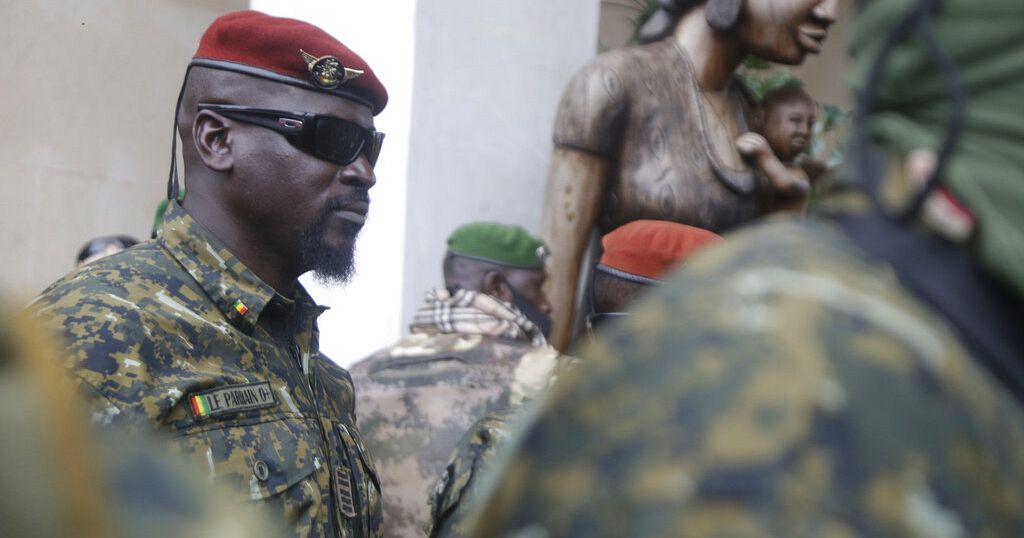
Guinea’s military Junta has announced it will hold a constitutional referendum on the 21st September 2025.
It’s hoped the vote will put the country back on the path to civilian rule following several broken promises by the military pledging to organise the referendum.
General Mamadi Doumbouya, head of the junta, had promised in his New Year’s address that 2025 would be a “crucial electoral year to complete the return to constitutional order”, without indicating a timetable.
The new date set for the referendum comes after the military missed a December 31st deadline..to launch the democratic transition.
The delay triggered anger from opposition figures, many took to the streets bring the capital, Conakry to a standstill.
The proposed constitutional changes on the ballot include setting presidential term limits, voters will also decide on whether current junta members are allowed to contest in elections
The referendum’s results could mark a departure from the “transition charter” drawn up by the military shortly after the coup that blocks members of the junta from running.
Guinea’s military leaders have long been accused of trying to stifle the opposition by arresting critics, including journalists, on false charges.
-

 Lifestyle2 days ago
Lifestyle2 days agoThere’s a new push to put whole milk back in school meals. Here’s what you should know
-

 Lifestyle2 days ago
Lifestyle2 days ago‘The Friend’: When the star of the movie is a very good boy
-
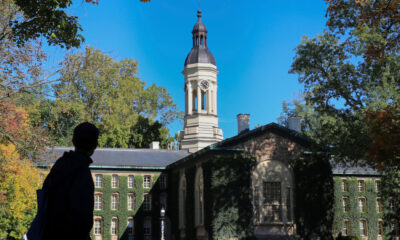
 Education1 day ago
Education1 day agoTrump administration suspends a host of federal grants to Princeton University
-
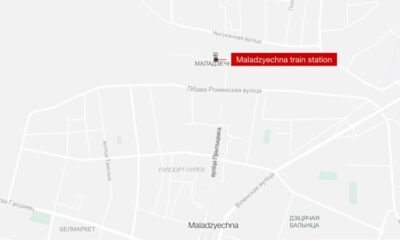
 Europe2 days ago
Europe2 days agoUS citizen detained in Belarus accused of sneaking into country on cargo train
-

 Sports2 days ago
Sports2 days agoDeshaun Watson: Cleveland Browns co-owner Jimmy Haslam calls controversial acquisition of QB a ‘big swing and miss’
-

 Sports2 days ago
Sports2 days agoNFL announces changes to kickoffs, overtime, how the ball is spotted and instant replay but owners table ‘tush push’ ban
-

 Lifestyle2 days ago
Lifestyle2 days agoEscaped otter is home safe but zoo says her pal is still on the loose
-

 Middle East2 days ago
Middle East2 days agoLibya: A Voice for Reconciliation | Documentary




